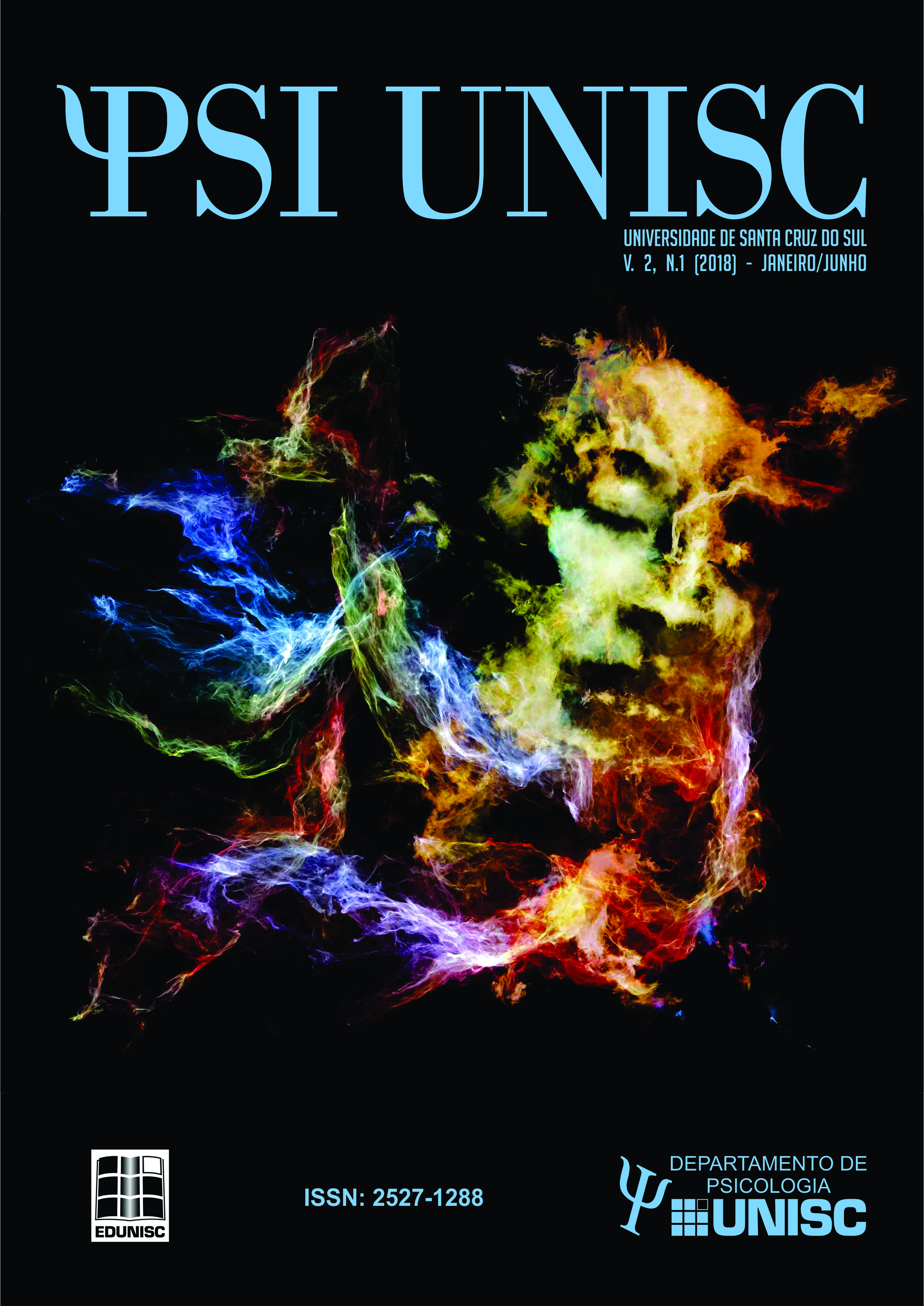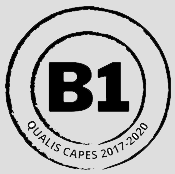Psychological Evaluation with Users of Psychoactive Substances (SPA): a Systematic Review of Literature
DOI:
https://doi.org/10.17058/psiunisc.v2i2.10837Keywords:
Psychological Evaluation, Psychoactive Substances, DependencyAbstract
The Psychological Assessment (AP) consists of a broad process that makes possible the knowledge of the psychological phenomena and helps in the delineation of diagnoses and prognoses. The AP involves a multiplicity of techniques and questions that extrapolate the limits of an exact and homogeneous denomination. This work aimed to make a brief historical recount about the use of psychoactive substances, seeking to understand how this use is meaning and positioned during the story, as well as understand how the process of Psychological Evaluation occurs with users of these substances. For this, a systematic survey of the literature was carried out with the following descriptors: "psychological evaluation AND drugs, psychological evaluation AND psychoactive substances, psychological evaluation AND chemical dependence" in the main databases that index newspapers in Brazil. The inadequacy of psychological and neuropsychological evaluation for psychoactive substance dependents was perceived, indicating the need for validation of more scales and psychological tests for this public, in addition to the adequacy of other techniques for dependent subjects. It is concluded that PA allows identification of possible impairments in cognitive ability and in the development of the social skills of individuals who use psychoactive substances. Through this identification, it is possible to make the necessary routing and intervene appropriately in the particularities of each case.Downloads
References
Alchieri, J. C.; & Cruz, R. M. (2003). Avaliação Psicológica: Campo de Conhecimento e Objetivos. In: ______Avaliação Psicológica: Conceitos, métodos e instrumentos. São Paulo: Casa do Psicólogo, 21-33.
Alves, V. S. (2009). Modelos de atenção à saúde de usuários de álcool e outras drogas: discursos políticos, saberes e práticas. Cad. Saúde Pública [online]. Rio de janeiro, 25(11), 2309-2319. Recuperado em 05 de abril de 2016, de http://www.scielo.br/scielo.php?script=sci_arttext&pid=S0102-311X2009001100002 .
Araújo, M. R.; & Moreira, F. G. (2006). História das drogas. In: SILVEIRA, D.X. da; MOREIRA, F. G. Panorama atual de drogas e dependências. São Paulo: Editora Atheneu.
Becoña, E.; & Vázquez. F.L. (2001). Heroína, Cocaína y drogas de sintesis. Madrid, Sintesis.
Ciribelli, E. B.; Luiz, A. M. A. G.; Gorayeb, R.; Domingos, N. A. M.; & Filho, A. B. M. (2008). Intervenção em sala de espera de ambulatório de dependência química: caracterização e avaliação de efeitos. Temas em Psicologia, 16(1), 107-118. Recuperado em 05 de abril de 2016, de http://pepsic.bvsalud.org/scielo.php?script=sci_arttext&pid=S1413-389X2008000100009
Franco, R. R. C.; &Villemor-Amaral, A. E. (2012) Validade incremental do Zulliger e do Pfister no contexto da toxicomania. Psico-USF, 17(1), 73- 83. Recuperado em 05 de abril de 2016, de http://www.scielo.br/scielo.php?script=sci_arttext&pid=S1413-82712012000100009
Godoy, S.L.; & Noronha, A. P. Porto. (2005). Instrumentos psicológicos utilizados em seleção profissional. Revista do Departamento de Psicologia - UFF, 17(1), 139-159. Recuperado em 05 de abril de 2016, de http://www.scielo.br/pdf/rdpsi/v17n1/v17n1a11
Hess, A. R. B.; Almeida, R. M. M.; &Moraes, A.L. (2012). Comorbidades psiquiátricas em dependentes químicos em abstinência em ambiente protegido. Estudos de Psicologia,17(1), 171-178. Recuperado em 05 de abril de 2016, de http://www.scielo.br/scielo.php?script=sci_arttext&pid=S1413-294X2012000100021
Martins, K. C.; & Seidl, E. M. F. (2011). Mudança do Comportamento de Fumar em Participantes de Grupos de Tabagismo. Psic.: Teor. e Pesq., Brasília, 27(1), 55-64. Recuperado em 05 de abril de 2016, de http://www.scielo.br/scielo.php?script=sci_arttext&pid=S0102-37722011000100008 .
Matumoto, P. A.;& Rossini, J. C. (2013). Avaliação das Funções Atentivas e Flexibilidade Mental em Dependentes Químicos. Psicologia: Reflexão e Crítica, 26(2), 339-345. Recuperado em 05 de abril de 2016, de http://www.scielo.br/scielo.php?pid=S0102-79722013000200014&script=sci_abstract&tlng=es.
Nunes, L.; & Jólluskin, G. (2007) A avaliação como ferramenta de análise e de intervenção nas toxicodependências. Revista da Faculdade de Ciências da Saúde, Porto, 4, 304-313. Recuperado em 05 de abril de 2016, de http://bdigital.ufp.pt/bitstream/10284/457/1/304-313REVISTA_FCS_04-4.pdf.
Ribeiro, M. M.; &Araújo, M. R. (2006). Política Mundial de drogas Ilícitas: Uma reflexão histórica. In: Silveira, D. X.; Moreira, F. G. Panorama atual de drogas e dependências. São Paulo: Editora Atheneu.
Sousa, P. F.; & Ribeiro, L. C. M.; Melo, J. R. F.; Maciel, S. C.; & Oliveira, M. X. (2013). Dependentes Químicos em Tratamento: Um Estudo sobre a Motivação para Mudança. Temas em Psicologia, 21(1), 259 – 268. Recuperado em 05 de abril de 2016, de http://pepsic.bvsalud.org/scielo.php?script=sci_arttext&pid=S1413-389X2013000100018
Downloads
Published
How to Cite
Issue
Section
License
The submission of originals to this journal implies the transfer, by the authors, of the printed and digital publication rights. The copyrights for the published articles are those of the author, with periodical rights on the first publication. Authors may only use the same results in other publications clearly indicating this journal as the medium of the original publication. Because we are an open access journal, we allow free use of articles in educational and scientific applications provided the source is cited under the Creative Commons CC-BY license.




